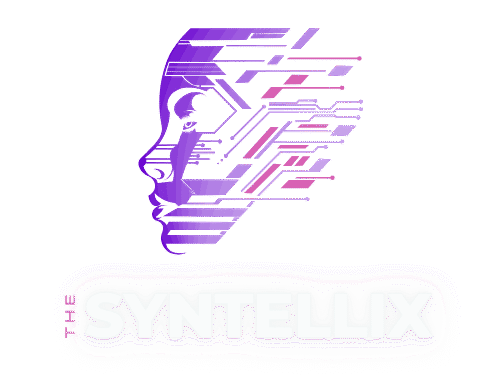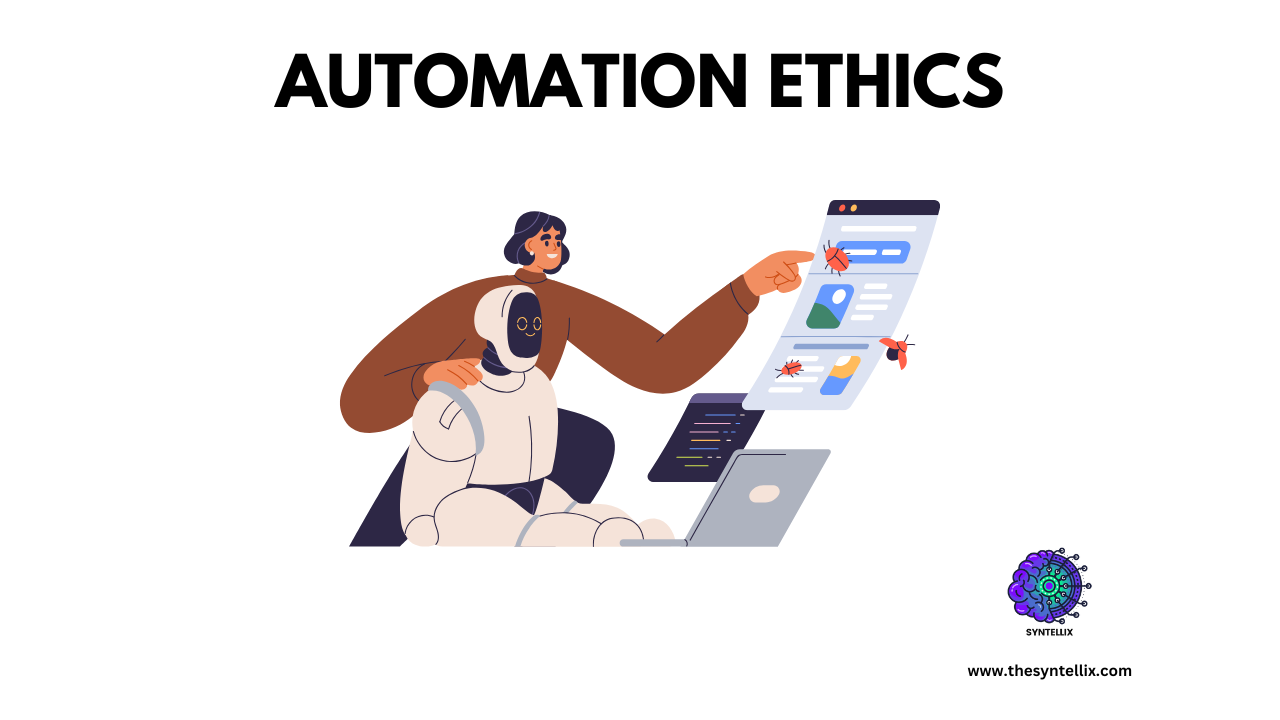If a robot is cleaning a blocked sewage pipe without risk to human health, is it a morally ethical choice? What about a self-checkout system at a supermarket, where there’s no conversation—just you and the machine?
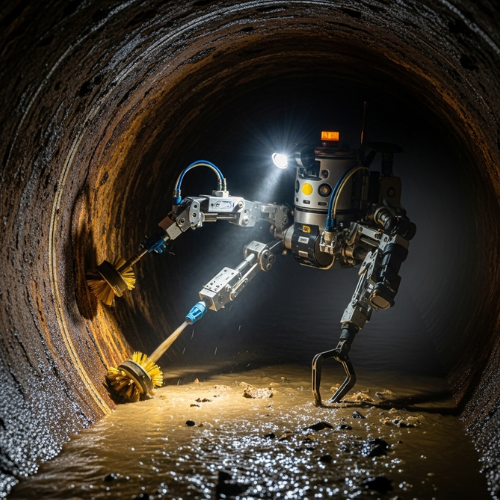
These questions may seem simple, but they lead to a much larger, more complex dilemma we’re facing today: Is it ethical to replace human workers with automation?
Let’s dive in and explore.
What Are Automation Ethics?
My experience has taught me that automation ethics isn’t just an abstract philosophical debate. It’s about ensuring we use technology and machines fairly and responsibly. Almost every industry, from driving cars to hiring employees, has embraced automation. This brings up critical questions about responsibility, privacy, and fairness.
For example, if an automated system makes a harmful decision, who is responsible? How do we protect our privacy and rights when machines are constantly watching, learning, and training on our data? And how can we ensure that AI is fair to everyone?
I’ve come to believe that automation ethics is a blend of technology, values, and humanity. It compels us to think not just about what machines can do to help us, but what they should do to uphold human rights and well-being.
A robot can certainly replace a factory worker, but is it ethical if that person is then left without a source of income or support? Ethical frameworks help developers, businesses, and policymakers create systems that are transparent, fair, and accountable, because when machines take on human roles, they must also reflect human responsibility.
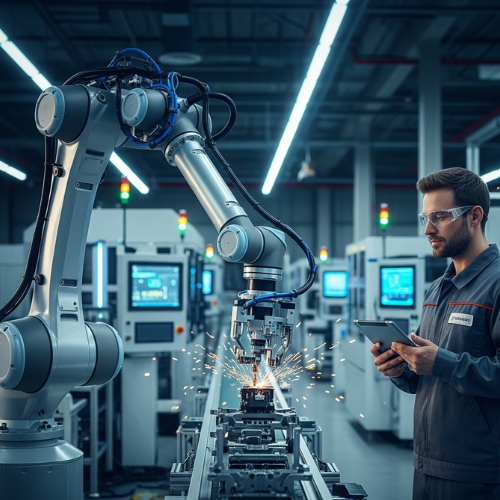
The Question: Is It Ethical to Replace Human Workers with Automation?
When we think about this question, it’s easy to fall into the trap of seeing robots as our competitors, a view often reinforced by science fiction movies. Our subconscious mind can lead us to believe that one day, robots will rule the world, and humans will be left in poverty.
But what if we treat robots as a tool, a friend, or an assistant that helps us live better? Did you know that millions of people are employed in the emerging robotics and AI industries? It’s estimated that in the next 10-20 years, millions more will be working in jobs that don’t even exist in the market yet.
The answer to whether it’s ethical to replace human workers isn’t black and white; it depends entirely on how it’s done, who it affects, and whether the benefits are shared fairly.
I’ve learned that automation has the power to make our work safer, faster, and more efficient. Machines can take over dangerous or repetitive jobs, which can lead to fewer workplace injuries and a boost in productivity.
I remember a project I worked on a few years ago where we used computer vision to automate a quality control process in a manufacturing unit.
The system was remarkably efficient at spotting flaws, but it also started flagging minor inconsistencies that human inspectors had previously overlooked. It was a real wake-up call for me. We were so focused on technical efficiency that we hadn’t considered the human nuances of quality. This led to a significant increase in rejected products, many of which were perfectly acceptable.
This experience taught me that while technology can boost the economy and lower costs for everyone, the ethical concerns must always be considered.
When companies rely too heavily on automation without thinking about the people they replace, it can lead to huge job losses, economic stress, and growing inequality.
Workers who lose their jobs to machines may struggle to find new work, especially without access to training or education. Additionally, many automated systems rely on algorithms that can reflect the biases in the data they are trained on, which can lead to unfair or discriminatory outcomes.
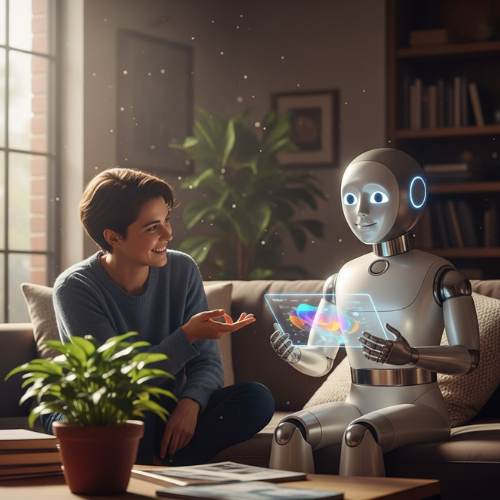
If a Machine Is More Efficient, Which One Do We Choose?
This is a very real and tough question that many businesses and societies are facing. When a machine can clearly do a task more efficiently and consistently than a human, it may seem logical to replace the worker.
But this creates a serious moral dilemma: if the worker loses their job and can’t find new work, it could lead to poverty or worse. So, what is the right thing to do?
My experience has shown me that the answer isn’t simply “choose machines or people.” It’s about creating a smart and fair transition.
-
Retraining and Reskilling: Instead of immediately removing workers, companies should invest in retraining and reskilling them. For example, a data entry worker could be trained to manage and maintain the new automated system, or they could shift into a role that requires empathy, creativity, and critical thinking—qualities that machines can’t truly replicate.
-
Shared Benefits: If machines help a company save money and become more profitable, some of that profit should be used to support workers in finding new jobs or learning new skills. This ensures that the benefits of automation are shared more equally.
-
Rethink the Value of Work: As a society, we may need to explore new ideas like universal basic income, stronger unemployment protections, or policies that encourage companies to create jobs with automation, not in spite of it.
When machines are more efficient, we don’t have to choose between progress and people. We can choose both, but only if we are willing to lead with fairness, creativity, and responsibility.
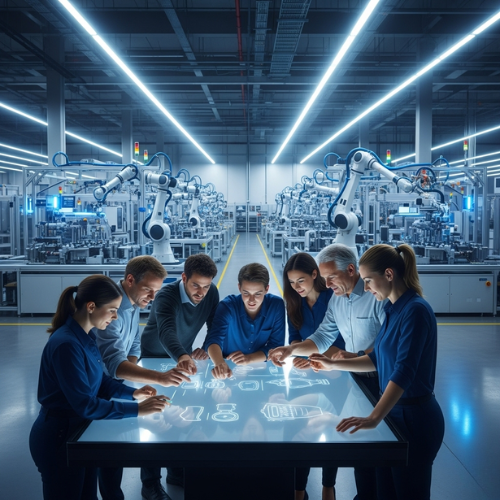
Conclusion: Automation Ethics in Practice
In the end, the question of whether it is ethical to replace human workers with automation doesn’t have a simple yes or no answer. It depends entirely on how we use the technology and how we treat the people affected by it. Automation can bring progress and innovation, but if it leaves workers behind, then it becomes a tool of harm rather than help.
My experience has taught me that the real challenge is not to choose between humans and machines, but to find a way for both to work together. By supporting retraining, sharing the benefits fairly, and designing technology with people in mind, we can create a future where automation empowers, not replaces, humanity.
Further reading: Beyond the Checklist: How Intelligent Automation Changed the Way I Work
People Also Ask For (FAQ)
Should human workers be replaced by automation?
Not entirely. While automation is a great tool for handling repetitive, dangerous, or highly precise tasks, humans bring creativity, empathy, and critical thinking that machines can’t replace. The goal should be to use automation to support workers not to replace them. so, we can focus on more meaningful, human-centered work.
Is it ethical to replace human workers with automation essay?
The ethics of replacing workers with automation depend on how it is done. If companies automate just to cut costs and leave workers without support, it raises serious ethical concerns. However, if automation is used to improve safety, productivity, and quality of life while also investing in retraining and fair transitions for workers—it can be both ethical and beneficial.
How do ethics play a role in automation vs human labor?
Ethics guides us how we balance profit with people’s well-being. With automation, we must consider who benefits and who might be harmed. It is not just about what machines can do, but what we should do. Ethical automation means creating policies that protect workers, prevent inequality, and ensure everyone shares in the progress.
Do you think machines will replace human workers in the future?
Machines will likely to replace some jobs but not all. They are best at tasks that follow clear rules. But roles that require judgment, emotional intelligence, or creativity will still need humans creativity. The future of work will be about collaboration humans and machines working together, each doing what they do best.
What is the future of human machine interaction?
The future of human-machine interaction is becoming more natural, intelligent, and collaborative approach. As technology advances, machines are learning to understand human speech, emotions, gestures, and even intent. This means we won’t just click buttons or type commands, we’ll talk to machines like we talk to people, and they will respond in ways that feel more human. With the help of AI, future interactions will be more personalized and context-aware, which helps people in everyday life, work, and education. Imagine virtual assistants that anticipate your needs, robots that work side-by-side with you, and tools that adapt to how you think and feel. The goal is to make machines helpful partners, not just tools.
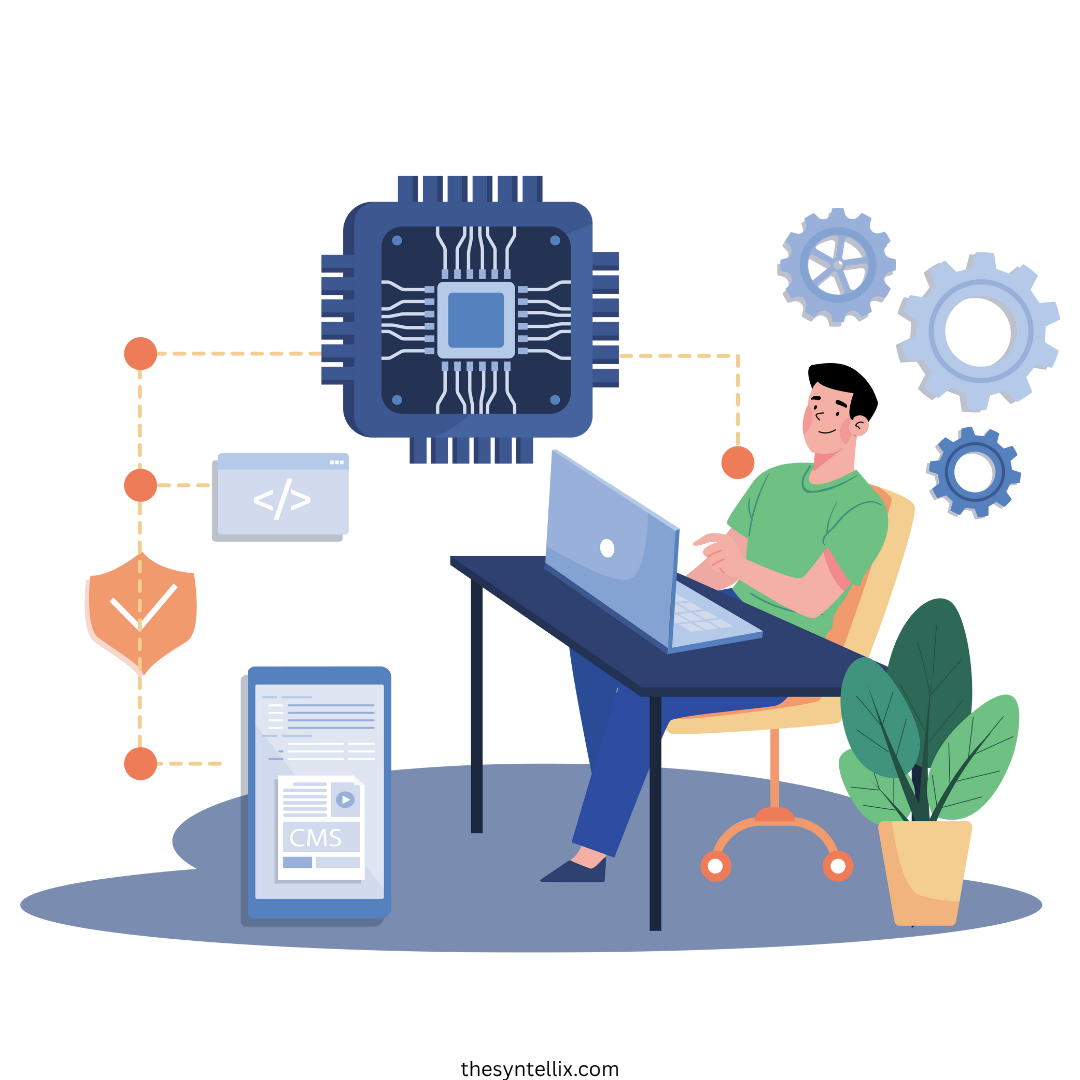
Stay ahead of the curve with the latest insights, tips, and trends in AI, technology, and innovation.
